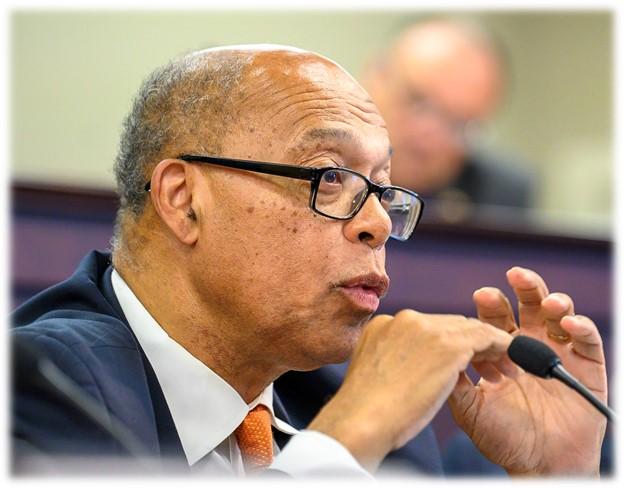RESTORATION
In order for God to restore our souls, we need to cooperate with Him and allow Him to do the change of character by taking the following steps:
1. Remove sin from the heart. The Bible states that sin cuts the connection between us and the Lord. “But your iniquities have separated between you and your God, and your sins have hid his face from you, that he will not hear” (Isaiah 59:2). When we confess our sins and forsake them, the Lord promises to forgive us (1 John 1:9).
2. Study God’s Word daily to hear His voice. We hear God speak to us through His Spirit. The Psalmist wrote, “Thy word is a lamp unto my feet, and a light unto my path” (Psalm 119:105).
3. Talk continually to the Lord through prayer for prayer is the breath of life Jesus gives us the model prayer in Matthew 6:9-13. In addition, the book of Psalms includes many prayers that can be of help in our daily walk with the Lord.
4. Be a part of the body of Christ or the church. The Psalms present many invitations from God to His people to come and fellowship with Him in His sanctuary (Psalm 95:12; Hebrews 10:25).
5. Obey the Lord. Jesus told His disciples, “If you love me, keep my commandments” (John 14:23). Obedience is the acid test of loyalty to God. Jesus said, “You will know them by their fruits” (Matthew 7:16).
6. Witness of God’s amazing love. “If you confess with your mouth the Lord Jesus and believe in your heart that God has raised Him from the dead, you will be saved” (Romans 10:9; Acts 1:8). When a person shares his faith with others, his own spiritual experience gets strengthened and blessed.
7. Live in praise. The Bible tells us that God “inhabits the praises of Israel” (Psalms 22:3). Praise and gratitude allows the Lord to live in our hearts and purify our souls for “the joy of the Lord is your strength” (Nehemiah 8:10).
However, while Scripture places much emphasis on God’s absolute sovereignty in the work of salvation, it never excludes or downplays human responsibility. The Shepherd leads, but the sheep are not passive. They follow Him, as is their duty. They may stumble or meander at times, but they know the true Shepherd and are known by Him, so they will never depart from Him completely. In Jesus’ words, “My sheep hear my voice, and I know them, and they follow me” (John 10:27). Their own righteous walk is one of the key evidences that they belong to the Good Shepherd. They are not saved by their righteous walk, but their righteous walk proves that God has saved them.
And here’s the ultimate proof that their faith in the Great Shepherd is authentic: they persevere. Those who depart from the paths of righteousness never to return did not belong to the Shepherd in the first place.
Yet because God is sovereign, His sheep are secure. They do persevere in the paths of righteousness. Moreover, the Shepherd Himself said: “I give them eternal life, and they will never perish, and no one will snatch them out of my hand. My Father, who has given them to me, is greater than all, and no one is able to snatch them out of the Father’s hand” (John 10:28–29).
3
Lessons from a leaf, about God, creation, life and us

After a long winter and a rather short spring, the trees are once again filled with leaves. This reminds me of a cancer patient that I ministered to many years ago. His life was drawing to an end. He had taught high school biology. His first love in that field was botany. His house was filled with plants. Green plants surrounded his hospital bed that sat in the living room next to a picture window through which we saw many more trees and plants. As we discussed spiritual and religious matters, he began to share how leaves teach us a lot about God, creation, life, and ourselves. I would like to share some of his thoughts with you.
Leaves teach us that there is a creator. A leaf is simple, yet highly complex in its design and function. It is able to convert sunlight into food. It is part of a wellbalanced ecological system which is able to sustain, renew and even repair itself. As with all living things, each human being is also a complex creation. No one is an accident or a mistake of nature. We are all here by the choice of a powerful and loving creator.
Leaves teach us that all things have a purpose. Leaves help to sustain and enhance all life on earth. They provide shade and moderate temperature. They replenish the atmosphere with oxygen as they absorb carbon dioxide. When leaves fall to the ground in autumn, they put nutrients in the soil. And leaves add beauty and color to our world. By doing what it is designed to do, a leaf serves the creator and glorifies him. Each of us is put on this earth for a purpose that is special and important, a purpose that enhances life for others and gives glory to our creator.
4
Leaves teach us that there is beauty at every age and stage of life. A leaf is beautiful when it is new and green in the spring time. It also is beautiful in the fall when it turns brown, gold or red. Each human being is beautiful at every stage, age, condition, or functioning level of life. When we view someone as ugly, that does not make him or her ugly. It merely means that our minds and hearts have been blinded, or we have chosen not to see a person’s inward and outward beauty. How boring would life be if all people were exactly the same? God appreciates variety, so he created each person to be unique. We are like leaves in that we are all different sizes, shapes, and colors.
Leaves teach us that change is inevitable. A leaf changes with the seasons. It begins as the bud in early spring, unfolds and expands in the summer, and finally changes color and falls to the ground in autumn. The natural process of life includes change. Change is the only constant in nature. We are conceived and born. We grow up and then, as God wills, we grow old. As we change, the world around us changes too. Change can cause us discomfort as it brings pain or loss into our lives. But it can also help keep life fresh and beautiful. To truly live, we must face, and even embrace, change as a natural part of life. We must also look to our unchanging God to sustain, strengthen, guide and comfort us in the midst of change.
Leaves teach us that all living things must die, but life continues. The leaf must wither and fall, but the tree remains alive to produce more leaves and to carry on the process of life. Every human being is born to live and then to die. Yet, even in death life continues. God, the source of our life, continues to live and to give us life even in the face of death. After we fall to the ground in death we continue to touch others through our legacy, through our accomplishments and achievements, through memories, and through our children. And by God’s grace through our living Savior, we live on as we join with our Creator-Savior in the eternal celebration of life.
BY JEFF HARTER.
5
What Autumn Teaches Christians about Life, Death, and God Autumn Prepares Us for Winter’s Coming
Inevitably, autumn’s beauty and wonder fades into winter’s chilled silence. Autumn doesn’t stay; it fades and falls away just like the leaves on the trees. Rhea expounds, “Autumn reminds us that our leaves too will die. The curse we inherited from our father-tree Adam means we have our seasons and then we go. Winter takes us all.”
This is a sobering thought. Just like autumn, I will not last forever on this earth. Winter is a stark reminder that there is a price for the curse we were born under…but there is hope. Rhea tells us,
“Autumn can draw our attention to the one man who broke through winter into an unending summer. The one who spent three days brown and dead in the dirt and came back in an indestructible green. The one who wasn’t just a leaf; he was a whole new tree.”
“Winter comes to us all. But winter isn’t the end for Christians, because our lives are joined to a tree that winter cannot touch. Death has no sting; winter has no bite. We will fall from the tree of Adam; but we will flower again in a spring of eternal, glorious growth.”
It’s this truth, according to Rhea, that “gives us the hope to die beautifully.” When I die, I don’t want to be clinging to the edges of this earth, begging for one more tainted day. I want to die with grace falling back into the arms of my Savior, knowing that His beauty is greater than anything I could compare on this earth.
Joseph Rhea
“The seasons come and go, so focus on the God who remains unchanged and unchanging. “LORD, You have been our dwelling place in all generations. Before the mountains were brought forth, or ever You had formed the earth and the world, even from everlasting to everlasting, You are God” (Psalm 90:1-2).
"There’s a lot of unwelcome change in our world. Moral and societal changes bother us most when we turn on our television or glance at the magazines. …But amid all the changes, one thing, one person, never changes our eternal God. “
“…His children will enjoy His fellowship a million years from now. The world may fade, the stars may fall, the seasons may change, and winter may come. But the God who has been our help in ages past is our hope for years to come. In Him we have permanence, stability, joy unshakable, and life unending.”
David Jeremiah
6
DEDICATED, FAITHFUL, KIND, WELL LOVED, RESPECTED AND BLESSED!


7
THE RENOWNED MUSIC EDUCATOR SISTER LUTISHA COLEMAN MORTON OF HISTORIC ST. PAUL AME CHURCH – LEXINGTON.
TUESDAYS @ 12 NOON
ID: 832 4172 0154 PC: 381000
WEDNESDAYS @ 12 NOON & 6:00PM


ID: 881 5939 5611
CHURCH SCHOOL ID: 852 9166 -3405
PC: 054455
ZOOMING AND BLOOMING FOR CHRIST
4TH MONDAY MONTHLY
ID: 844 0501 0039 PC: 83075
8 TO
WHO IS A LAYPERSON?
ALL PERSONS WHO HAVE JOINED THE AME CHURCH AND HAVE NOT BEEN ORDAINED IS A LAYPERSON ALL LAYPERSON’S ARE ENCOURAGED TO BECOME AN ACTIVE MEMBER OF THEIR LOCAL CHURCH LAY ORGANIZATION.
2021–2025 Theme
The Lay Organization
The 2021–2025 theme of our SPAME Lay Organization is that of the Connectional Lay Organization theme for 2021-2025, "Living A Global Witness Ministry That Transforms, Transcends and Liberates."
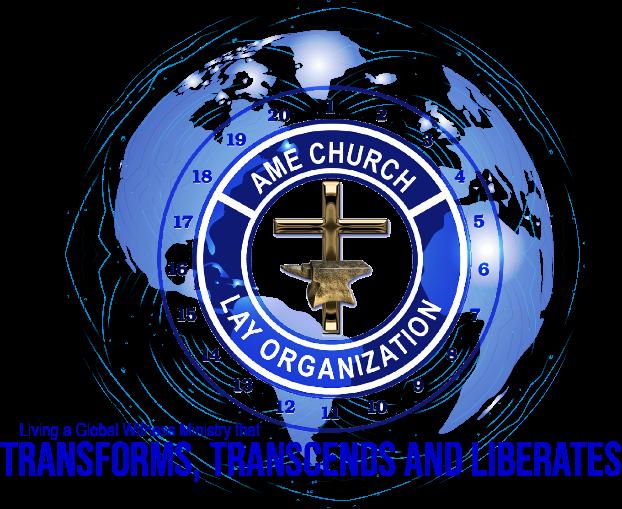
This theme reflects the vision that guides our work in continuing the programs that are the core of our mission - teaching, training and empowering.
This quadrennial theme is derived from the scriptural reference of Luke 4: 18- 19. "The Spirit of the LORD is upon me, because He has appointed me to preach the gospel to the poor, He has sent me to heal the brokenhearted, to proclaim liberty to the captives and recovery of sight to the blind, to set at liberty those who are oppressed, to proclaim the acceptable year of the Lord".
The scriptural reference is aligned to the AME Church vision as espoused in the Doctrine and Discipline of the AME Church (2021). The vision challenges members to engage in carrying out the spirit of the original Free African Society, out of which the AME Church evolved. The Vision directs that members should "seek out and save the lost; to serve the needy; and to be duty-bound as a Church to encourage all members to become involved in all aspects of the church training."

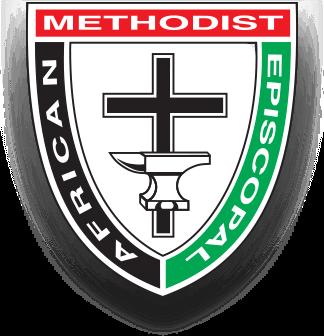
The vision of the AME Church further directs that it is through the inspiration of the Holy Spirit that members of the Lay Organization can courageously go out of their comfort zones "to spread Christ's liberating gospel and to provide continuing programs that will enhance the entire social development of all people".
Historic St. Paul AME Church, let us work together as a bridge of unity to embrace collaboration, diversity, equity and inclusivity according to our Lay Organization theme"Living A Global Witness Ministry That Transforms Transcends and Liberates." This is our
9
guide to continue our efforts in developing programs that lead to pathways of empowerment for our members as lifelong learners and future leaders.
Source [with edits] CLO 2023-2026 Study Guide
Lay Organization Transforming Lesson Are We Doing What the Lord Requires of Us?
Glenda Minor, 8th Episcopal District CLO Study Guide – 2023- 2025
LESSON FOCUS:
Micah chapters 1-6; 1 Kings 2:3-4; 2 King chapters 14-17; and 2 Chronicles Chapter 28
• Micah was a prophet for 55 years during the reigns of three kings of Judah- Jotham, Ahaz, and Hezekiah. God called Micah toward the end of Jotham's reign, and he continued through part of
• Hezekiah's reign.
• King Ahaz was one of Judah's worst kings. He led the people far astray from worshipping God. Ahaz led people further away from God than any previous king. When Ahaz's reign ended, his son Hezekiah became king.
• King Hezekiah was not like his father. He had a personal relationship with God that grew over time. Through the prophesy of Micah, God commanded King Hezekiah to restore the temple and to institute religious reforms that would bring the people of Judah back to worshipping God.
• Although Israel had many kings, they were not the ultimate authority in Israel. Rather, God's covenant word was the real authority. God raised up prophets to counterbalance the office of the king. For every king, there was a prophet or group of prophets to call the king to accountability to God's word.
• Under King Hezekiah's reign, Micah was one of the prophets that carried God's word of judgement. King Hezekiah listened to Micah.
• Micah, the author of this book was from a small country town called Moresheth. The town was southwest of Jerusalem. When folks spoke of Moresheth, they frequently associated it with the town of Gath.
• It's somewhat strange that Moresheth, an Israeli city would be associated with Gath, a Philistine city given they were long-time enemies of each other. Gath was the hometown of Goliath.
• God raised up Micah, a simple person, a country boy, a farmer from a small-town called Moresheth-Gath to be a prophet to three kings and to write the prophetic book of Micah. Micah became such a profound individual because of the impact that he had on Kings - particularly King Hezekiah who was one of the most noteworthy kings in history.
• King Hezekiah listened to the voice of God through Micah's prophesy that led to tangible and actionable results. King Hezekiah was on the throne when God sent Angels to stop 185,000 Assyrian soldiers from destroying God's people on the battlefield. The time of Babylonian captivity was delayed by a century because of the difference Micah from Moresheth-Gath made. According to Jeremiah 26: 18, it never would have happened if it had not been for Micah the
• prophet- a country boy from a small-town called Moresheth-Gath.
10
LEARNING OBJECTIVES:
• To demonstrate how God wants us to go beyond what is expected of us and what we may expect of ourselves.
• To embrace our belief in His word and how we can achieve much no matter our abilities, income or position.
MATERIALS NEEDED:
Bible
REFERENCE RESOURCES:
Book of Micah
1 Kings 2:3-4
2 King chapters 14-17
2 Chronicles chapter 28
FRAMING THE LESSON:
First Point: Don't allow the scope of God's Vision for our work, as Lay people, to be determined by the humbleness or humility of our origins. Micah, a simple man from the small country town of Moresheth-Gath made a major difference! As lay people in this AME Church, we can all relate on some level to this situation. There have been times when we've looked at something in our lives as a Moresheth-Gathtype of situation. We've looked at our humble origins or perceived limitations of our abilities or wisdom and maybe questioned our ability to make an impact. So, we're tempted not to give what we have to God. We are tempted not to raise our hand to say I'm willing to serve. We question our preparation to serve because of our humble origins. We wonder about the level of our gifts or talents. We complain about the lack of resources. We lament the connections we don't have that other people have.
God has never been looking for great ability, resources or connections. He's looking for our willingness and availability to Him. If we give God our Moresheth-Gath or in other words, the humility of our origins and perceived limitations of our abilities and resources, if we give God the area of our life that we think He couldn't possibly use, He will fill it with His spirit. He will fill it with His power. And we will watch Him do things that will change our lay organization and the AME church for a lifetime. Ephesians 3:20-21 (MSG) - "God can do anything, you know-far more than you could ever imagine or guess or request in your wildest dreams! He does it not by pushing us around but by working within us, his Spirit deeply and gently within us."
Second Point: We need to believe we've been raised up by God to speak to issues! In Micah chapters 1 through 5, Micah described the impending judgement that would eventually exile the nation of Judah. Micah was living in a time of major corruption: financial corruption, religious corruption, and social corruption. People were violent; sexual perversion was being practiced. We need to believe that we can be a Micah. To call things out! To speak God's word to situations going on! And, to speak to cause people to turn their attention to what God requires of us.
Third Point: The Laity must play a critical role in leading efforts "to act justly, to love mercy, and to walk humbly with our God." How can we "Act Justly?" Listen to what it
11
says in Micah Chapter 6:6-7. "With what shall I come before the Lord, and bow myself before the High God? Shall I come before Him with burnt offerings, with calves a year old? Will the Lord be pleased with thousands of rams, ten thousand rivers of oil? Shall I give my first born for my transgressions, the fruit of my body for the sin of my soul?"
The people of Israel are asking the Lord, in a hyperbolic and rhetorical way. So, what do you want us to do about the sins we've committed? The people of Israel and Judah knew that these offerings of repentance could only be made by someone extremely wealthy or by the larger community of God's people.
Their questions give us a glimpse into the character of hypocrites and habitual sinners, who hope to obtain God's favor by performing certain external ceremonies and are willing to buy pardon rather than fix their sin problem. Israel's focus was on their external religious ceremonies.
The answer to Israel's sin problem was not more numerous or more painful sacrifices. The answer was something much deeper than any religious observance; they needed a change of heart. Without the heart, Israel's conformity to the Law was nothing more than hypocrisy.
God said to them, and He is saying to us, "You can give everything to me - your time, your money, your possessions, your goods, doing church, but it will be a sham unless it results in concrete love for your neighbor."
What does this mean for the laity and the church as a body of Christ? When we see need, love ought to cause us to feel one another's cares and our feelings should prompt us towards action. Action gives illumination to our faith. Jesus told us to let your light shine before men that they may see your good works and give glory to your Father in heaven (Matthew 5:16). Our efforts should be more than just about us. It should be about Christ working in us and through us. The opposite of love is not hate! The opposite of love is indifference and apathy. Love will cause us to focus on the need, not the danger. Love will cause us to act with compassion. Love will cause us to do more than the minimum.
And finally, "Walk humbly with God." This is a description of the heart's attitude toward God. God's people depend on Him rather than their own abilities (Micah 2:3). Instead of taking pride in what we bring to God, we humbly recognize that no amount of personal sacrifice can replace a heart committed to justice and love. Israel's rhetorical questions had a three-part progression, and Micah 6:8 contains a similar progression. The response of a Godly heart is outward response (do justice). It is an inward response (love mercy). And it is an upward response (walk humbly)
TAKEAWAYS OR KEY LEARNINGS:
• God has never been looking for great ability, resources or connections. He's looking for our willingness and availability to Him.
• We need to believe we've been raised up by God to speak to issues!
• Religious rituals, no matter how extravagant, can never compensate for a lack of love.
• (1 Corinthians 13:3).
• External compliance to rules is not as valuable in God's eyes as a humble heart that simply does what is right.
• God's people today will continue to desire justice, mercy, and humility before the Lord.
12
Micah 6:8 Walk Humbly
What does the Lord require of us; what does He want us to do ? He wants us to raise up our hearts to Him and to love others as He loves you. He says He will watch over each person; though they come from all walks of life; He wants us to act justly and to love mercy instead of living in anger and strife. He wants us to walk humbly with Him as we tell others about His great love, He wants us to walk in the spirit of peace as He watches us from up above. Sometimes it's so hard to show mercy to someone who irritates you; But have you forgotten that the Lord loves us all even though we can irritate too. So try to walk justly and show mercy; to God this is a must, He gives each of us a portion of faith; so to others we can be just.

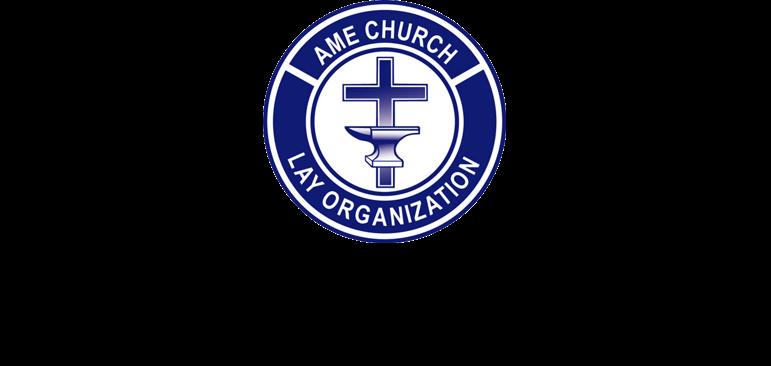 --Sonia Andrade Idle
--Sonia Andrade Idle
This poem is a reminder that God loves us all, He only patiently waits for us to love Him back. He wants us to be patient and humble just as He is....and He wants us to be kind and to show mercy to others, for as He so loves us, let us learn to love back.
13
LEGISLATIVE UPDATE
August 11, 2023
Senator Reginald Thomas’s Intern Taylor Griffith
FRANKFORT – Are you aware that children spend a significant portion of their day at school? In fact, they spend around 19 percent of their day there, second only to sleeping, which accounts for 40 percent. As a parent, it's only natural to research the school district before sending your child to public school. Ensuring their child receives an education from qualified educators in a safe environment is paramount to many parents. I am pleased to state that the Kentucky education system is continuously improving to prioritize these concerns.
Kentucky is currently experiencing a shortage of teachers, and Nelson County Schools have taken action to combat this issue. They have partnered with Western Kentucky University (WKU) to establish a paid apprenticeship program for aspiring educators. This program is a joint effort between the Nelson County school district, the University Educator Preparation Program (EPP), Community & Technical College (CTC), and Kentucky Office of Employer and Apprenticeship Services (OEAS). It equips future teachers with the necessary
1
tools to educate young people effectively, offering the Demonstration of Learning (DOL) Work Process, Dual Credit Coursework, University Coursework, and Student Teaching components. Aspiring teachers can join this program while still in high school or as adult learners. The program provides numerous benefits including collaboration with districts and EPP, mentor-based clinical experiences, earn-and-learn opportunities, the chance to build affiliations with the community, and highly-trained, professional, and committed teachers. By establishing this excellent solution to the teacher shortage, Nelson County has ensured that the quality of education will not be compromised. I strongly support the partnership between WKU and Nelson County, as I believe that teachers should have the opportunity to earn a degree while earning money.
Senate Bill 1 (SB1), the School Safety Resiliency Act, was passed in 2019 to improve the safety of students in Kentucky schools. On July 18, 2023, Senator Max Wise updated the Special Committee Task Force on School and Campus Safety about the amendments made to SB1. These modifications have strengthened security measures in Kentucky schools by implementing more personnel, systems and security, and promoting a culture of student connection.
The original School Safety Resiliency Act established a certified School Resource Officer (SRO) hired by a law enforcement agency or local school board. Additionally, they were to be assigned to each school within a district as funds and qualified personnel became available. Notable changes to these personnel were enacted by Senate Bill 8 (SB8) and House Bill 63 (HB63). Under SB8, one SRO may be assigned per campus, and SROs shall be armed with a firearm. HB63 outlines how a local school district can establish its own police department. Furthermore, the School Safety Resiliency Act now establishes the office of the state school security marshal to enhance school safety in the Department of Criminal Justice Training through a school security risk assessment tool. Local school districts will use this tool to identify threats, vulnerabilities, and appropriate safety controls for each school in the district. Finally, the School Safety Resiliency Act now establishes and outlines the role of a district-level school safety coordinator. They will undergo a training program with response drills for hostage and active shooter scenarios. Moreover, participants will learn how to recognize and address security threats and provide training to school principals.
To ensure greater safety and security within the school building, SB1 amended KRS 158.162. The following changes were made: the school's main entrance must be controlled by an electronically locked door, a camera, and an intercom system. Furthermore, classroom doors must be equipped with hardware that allows them to be locked from the outside and opened from the inside. Classroom doors must remain closed and locked during instructional time unless only one adult and child are present. Classroom doors with windows must also be equipped with materials to quickly cover the windows during a building lockdown. Additionally, all school district employees with direct contact with students must undergo a minimum of one hour of training on how to respond to an active shooter situation. Lastly, SB1 has also amended the statute on terroristic threatening, including making false statements that could cause evacuation of a school building or property; canceling school classes or activities; or causing fear of severe bodily harm among students, parents, or school staff. The principal is also required to make an annual notification to all students regarding the provisions of the statute and penalties for violating the statute on terroristic threatening.
Improving safety and security in schools includes suicide prevention. Therefore, suicide prevention awareness information must be provided to all students in grades six through twelve in person, by live streaming, or a video recording. In addition, employees with direct contact with students must receive a minimum of one hour of highquality suicide prevention training, which includes recognizing signs and symptoms of possible mental illness.
Finally, to improve the culture of student connection, SB8 requires schools to employ at least one school counselor in each school with the goal of having one school counselor for every two hundred fifty students. The school counselor is expected to spend at least sixty percent of their time in direct services to students. Schools are also expected to develop a “trauma-informed approach” to foster a safe, stable, and understanding learning
2
environment for all students and staff and ensure that all students are known well by at least one adult in the school setting.
Inclosing,IampleasedwiththecurrentpaththatKentucky'seducationsystemistaking.Thesafetyandeducation of our students should be our top priority, which will reassure parents and create a conducive learning environment. I am convinced that if more school districts implement the apprenticeship program, we can tackle the teacher shortage more effectively. Moreover, I am optimistic that the revisions to SB1 will improve the safety of our students. I am excited to witness fresh concepts that uphold the well-being of our younger generation.
For more information on the 2023 Interim, visit the Legislative Record online at www.legislature.ky.gov. There you can view the committee calendar, watch archived coverage of committee meetings, search legislator contact information, learn about the legislative process, and view informational materials.
To share feedback with me on this issue, or if you have any comments, questions, or concerns, I am accessible by email at Reginald.Thomas@LRC.KY.GOV. You can also leave a message for me on the Legislative Message Line at (800) 372-7181. Citizens with hearing impairments can use the Kentucky Relay Service at 711. A Spanish language line for legislative information will be available by calling 1-866-840-6571. -END-
3
‐‐‐
LEGISLATIVE UPDATE
August 25, 2023
Senator Reginald Thomas
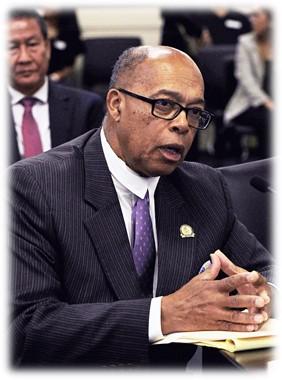
WORKFORCE PARTICIPATION
Imagine a Kentucky that stands tall as the epicenter of business growth, innovation, and a hub of opportunities for everyone - a state that successfully navigates the challenges of today and tomorrow. As we paint this picture and aspire for such a future, it's essential to stay informed and engaged on the happenings in Frankfort.
Fresh off the Interim Joint Committee on Economic Development and Workforce Investment, I bring you insights, aspirations, and updates from the pivotal discussions around Kentucky’s Workforce and Labor Market, which have sparked optimism and reflection.
Our state's workforce participation remains below prepandemic levels. This trend is not unique to us, as workforce participation across the U.S. mirrors this decline. However, Kentucky's workforce participation gap in comparison to the national average persists.
Despite these challenges, Kentucky is emerging as a key hub for business investment and expansion. The quest for skilled workers is likely to intensify among states, given the demographic challenges we're observing. State public policy will be the differentiator between success and stagnation.
Currently, we are witnessing a shift in our demographics. The Baby Boomer generation has been a significant driver in our workforce, but as they age, their participation is decreasing. This is not just a Kentucky trend but a national one. By 2029, all Baby Boomers will be aged 65 and above. By 2034, older adults (65+) will outnumber children in the U.S. for the first time in history.
1
Retirement looms for nearly 1 in 4 Kentucky workers. Age composition for our workers aged 5465 has risen by nearly 10% over the last two decades. Alarmingly, our fastest-growing workforce group is aged 55+. Our neighboring states, like Tennessee, Indiana, Georgia, and North Carolina, have seen substantial population growth. In comparison, Kentucky has struggled in this aspect. Our path forward? Proactive policy solutions.
Childcare Solutions: Ensuring all Kentuckians have easy access to affordable, quality childcare.
Addressing Substance Use: Facilitate employment opportunities for those in recovery.
Infrastructure and Connectivity: Linking Kentuckians in high unemployment areas to job opportunities through robust infrastructure, transportation, and broadband.
Support for the Formerly Incarcerated: Aiding their re-entry into the workforce through targeted support measures.
Incentives for Employers: Encouraging businesses to offer lucrative incentive packages to their employees.
State Financial Aid Programs: Aligning them more closely with workforce needs.
Tapping into Untapped Talent: Focusing on segments of the population that have traditionally been underutilized, including refugees, immigrants, and those with disabilities.
Governor Andy Beshear has done a great job recruiting companies to Kentucky that provide good-paying, skilled jobs. However, we still have challenges ahead we must confront, and it is our commitment to address them. Together, with a focus on forward-thinking policy and community engagement, we can continue building a thriving commonwealth.
NAIL TECH CERTIFICATION:
This past week, I had the honor of testifying at the Interim Joint Committee on Licensing, Occupations, and Administrative Regulations, discussing an upcoming bipartisan bill for the 2024 legislative session. This bill aims to update nail tech certification testing and nail salon regulations in the state.
I've hosted numerous meetings with stakeholders and advocates and diligently worked on the legislation alongside my esteemed colleague, Sen. John Schickel, R-Union, recognizing its significance to the nail tech community and the broader Kentucky population. It was my privilege to invite various representatives from the nail tech industry that were involved in these discussions to share their insights and experiences, ensuring that their voices are central to the formulation of this bill.
2
One of the nail technicians who testified, Ms. Molida Soth, eloquently illuminated current challenges faced by nail techs, especially within the Asian American Pacific Islander community. A crucial point of contention is the language limitation on the nail tech certification exam, which is currently only offered in English. This oversight inadvertently places non-native English speakers at a disadvantage, not due to a lack of skill but simply because they are not proficient in the language.
Another concern raised was the excessive fines and premature shutdowns nail salons face under the current regulatory structure, often without a chance for course correction. My proposal advocates for two primary reforms: a nail tech representative added to the state cosmetology board, and the provision of a written warning before any punitive actions are taken against nail salons.
As we continue shaping this legislation, we aim to support our hardworking nail tech community and ensure their skills, dedication, and relentless pursuit of the American dream are acknowledged and facilitated.
Lastly, it was an honor to have the U.S. Ambassador from Cambodia join us at the committee meeting. The Ambassador’s attendance emphasizes the importance of this legislation and exemplifies the strong ties and mutual support between our nations. I am deeply grateful for the Ambassador’s engagement and for taking the time to interact with stakeholders and advocates after our committee meeting.
As we look ahead to the 2024 legislative session on January 2nd, I remain optimistic about our future. Together, we can usher in an era of inclusivity, equity, and growth for all Kentuckians.
For more information on the 2023 Interim, visit the Legislative Record online at www.legislature.ky.gov. There you can view the committee calendar, watch archived coverage of committee meetings, search legislator contact information, learn about the legislative process, and view informational materials.
To share feedback with me on this issue, or if you have any comments, questions, or concerns, I am accessible by email at Reginald.Thomas@LRC.KY.GOV. You can also leave a message for me on the Legislative Message Line at (800) 372-7181. Citizens with hearing impairments can use the Kentucky Relay Service at 711. A Spanish language line for legislative information will be available by calling 1-866-840-6571. -END-
You are currently subscribed to sen‐thomas as: bessmjackson@iglou.com
3
‐‐‐
To unsubscribe click here: http://listserv.ky.gov/u?id=10703784.2910d004ad89dcd7fcc6bbdd15ac5acb&n=T&l=sen
thomas&o=2543301
(It may be necessary to cut and paste the above URL if the line is broken) or send a blank email to leave‐2543301‐10703784.2910d004ad89dcd7fcc6bbdd15ac5acb@listserv.ky.gov
4
‐
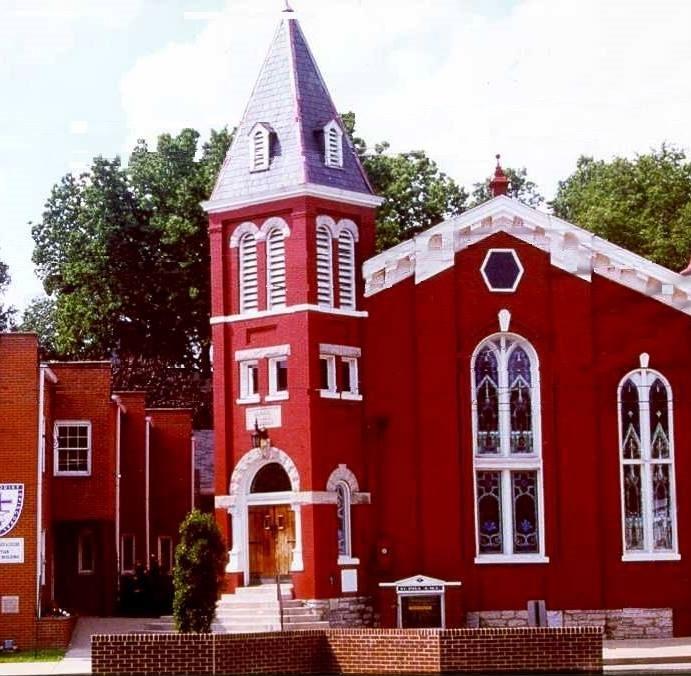













 --Sonia Andrade Idle
--Sonia Andrade Idle
